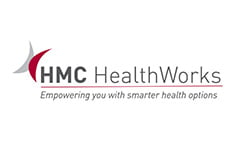Mindfulness-based cognitive therapy (MBCT), also referred to as mindfulness-based cognitive behavioral therapy, is a type of psychotherapy that combines cognitive therapy, meditation, and the cultivation of an attitude known as mindfulness. Mindfulness is the ability to be fully present and aware of where you are and what you’re doing. At our drug rehab in Massachusetts, we believe that teaching mindfulness in therapy for addiction is crucial because it encourages emotional control and stability. To help patients develop mindfulness in addiction recovery, we offer them the opportunity to receive our mindfulness-based cognitive therapy in Boston.

What Is Mindfulness-Based Cognitive Therapy?
Mindfulness-based cognitive therapy (MBCT) was developed by therapists Zindel Segal, Mark Williams, and John Teasdale to build upon an existing therapeutic approach, cognitive behavioral therapy (CBT). They felt that by combining cognitive therapy with a program developed in 1979 by Jon Kabat-Zinn called mindfulness-based stress reduction (MBSR), therapy could be even more effective for people with substance use and mental health disorders.
Mindfulness CT builds upon the principles of cognitive therapy by using techniques like mindfulness meditation to teach people to pay attention to their thoughts and feelings without judging themselves. Common MBCT techniques our therapists use at Banyan Massachusetts include:
- Meditation: Patients may engage in guided or self-directed meditation to gain a greater sense of awareness of their body, thoughts, and breathing.
- Body scan exercise: This involves lying down and bringing awareness and attention to different areas of the body. For instance, the individual may begin relaxing or flexing their muscles starting with their toes until they reach the top of their head.
- Mindfulness practices: Mindfulness involves becoming more aware of the present moment. Although it’s commonly achieved through meditation, people can also do mindfulness-based activities in everyday activities.
- Yoga: MBCT may also include yoga to facilitate mindful stretching of the body.
Clients might also be taught something known as the “three-minute breathing space technique,” during which they focus on three steps, each one a minute long:
- Observing your experience (How do you feel right now?)
- Focusing on your breath
- Paying attention to your body and physical sensations
Other MBCT techniques include walking, sitting meditations, and music therapy.
What MBCT Can Help With
MBCT can be effective for individuals with mental health and substance use disorders. While it was originally developed for depression, mindfulness-based cognitive therapy can also be effective for treating conditions like:
- Anxiety disorders
- Bipolar disorder
- Depression associated with medical illnesses
- Low mood
- Unhappiness
- Depression-relapse prevention
- Treatment-resistant depression1
In addition to these conditions, our mindfulness-based cognitive therapy in Boston is also beneficial for patients with substance use disorders. A lack of mindfulness and high stress are two major contributing factors to drug and alcohol abuse.
Our team recognizes the need to incorporate stress management and mindfulness techniques into our Massachusetts addiction treatment. By offering mindfulness-based group therapy and individual counseling, our goal is to assist clients in replacing substance use with healthy coping mechanisms when confronting the inevitable stressors and triggers that threaten sobriety.
Benefits of Mindfulness-Based Cognitive Therapy
Cognitive therapy is founded on the belief that thoughts result from moods and that false self-beliefs that lead to negative emotions like depression or contribute to behaviors like drug and alcohol abuse. MBCT utilizes all elements of cognitive therapy to help patients recognize and reevaluate their patterns of negative thinking and replace them with more positive thought patterns that will contribute to their recovery.
This approach guides patients in reviewing their thoughts and emotions without getting caught up in the past or the future. We believe that patients need to be aware of the present and their current situation so any negative thinking related to what could have or might have been doesn’t hinder their progress.
Additionally, MBCT encourages clarity of thought and provides patients with the tools needed to more easily let go of negative thinking instead of allowing it to build up. Similar to cognitive therapy, mindfulness-based cognitive therapy is based on the theory that if you have a history of mental illness or substance abuse, you’re more likely to return to those automatic cognitive reactions that triggered these responses in the past.
We want to help our clients learn how to process their feelings healthily and learn how to interrupt negative automatic thoughts that would otherwise hinder their sobriety or recovery.
How to Get Started
If you or a loved one is struggling with addiction or co-occurring disorder, our mindfulness-based cognitive therapy in Boston can help in the recovery process. Our highly-skilled therapists are here to help our clients in every step of their journey.
In addition to MBCT, our drug rehab in Massachusetts also offers various levels of substance abuse treatment and addiction therapy programs like DBT, biofeedback, SMART Recovery, and more. From physical recovery to mental wellness, we offer flexible and effective treatment that’s individualized to every patient’s needs.
For more information about our MBCT and other addiction services, contact Banyan Massachusetts today.
Source:
Most Insurance Plans Accepted
At Banyan Massachusetts our goal is to make sure that anyone who needs treatment from drug and alcohol addiction are able to get the help needed to assist them on the road to recovery. If you don't have insurance contact us to inquire about alternate methods regarding treatment for yourself or a loved one.











